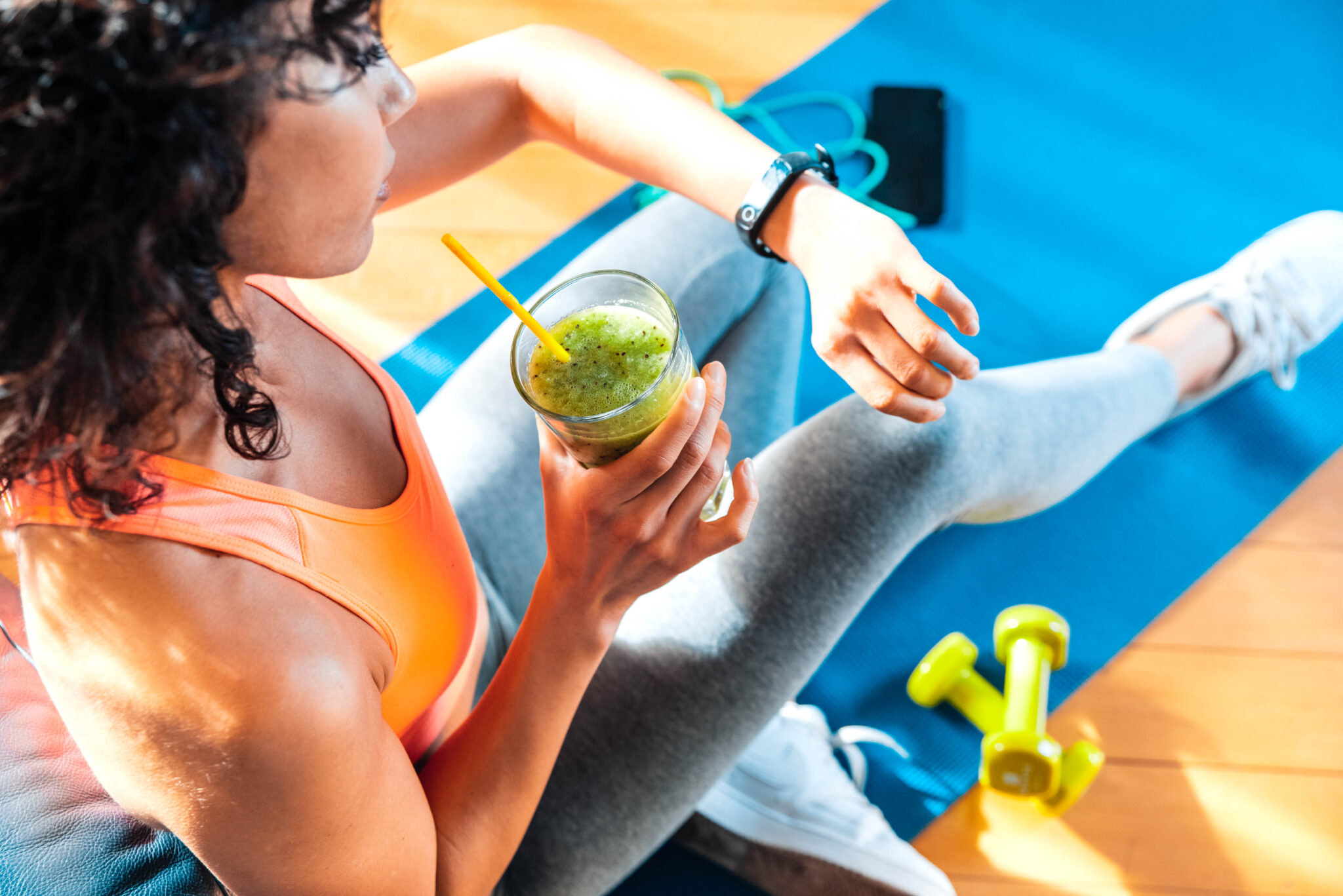Health/Wellness, Patient Blog | Oct 23 2023
Understanding nutrition for exercise

People of varying physical fitness levels may consider themselves an athlete. However, different levels of athletic participation come with different levels of demand and needs for nutrition. Whether you identify as a weekend warrior, a competitive athlete, or somewhere in-between, chances are you have wondered if you’re consuming the right nutrition for exercise.
Do I load up on carbohydrates? Do I recover with a good dose of protein? Are electrolyte drinks necessary? These answers aren’t a simple yes or no and can vary depending on the type and length of activity. For much of the population (those weekend warriors and in-betweeners), a rigid schedule isn’t necessary. However, a balanced plan for nutrition can be essential for optimal performance and recovery. Here are some general guidelines for what dietitians recommend.
Before activity
While some individuals prefer to exercise on an empty stomach, it’s important to pay attention how you feel. If you feel lightheaded, nauseated, or fatigued, your body may be telling you you’re lacking some nourishment. For proper nutrition for exercise, it’s important to consider carbohydrate choices and ensure adequate hydration before beginning your workout.
Carbs = Fuel
Choosing a healthy, carbohydrate-rich snack about an hour before exercise will ensure your body has the energy stores it needs to sustain the physical activity and ward off feelings of hunger. Some good options include low-fat Greek yogurt, whole wheat toast with nut butter, low-fat milk, fruit, vegetables, or whole grain cereal. If you’re short on time, eating a small piece of fruit 5 to 15 minutes before a workout can help ward off mid-activity hunger and provide sustained energy during the activity.
Hydrate!
The human body is made up of 60% water, and a decrease in just 2% to 3% can affect physical performance. It is essential to ensure adequate intake of fluids before, during, and after physical activity to prevent dehydration. Hydration is a key base for nutrition for exercise.
During activity
Typically, if activity is under 60 minutes, there’s no need to refuel other than continued fluid intake. Remember to keep a bottle of water nearby and take sips throughout your exercise, trying to consume about 4 to 6 ounces every 15 minutes.
Endurance events
For activities that last longer than 60 minutes, it is recommended to consume 30 to 60 grams of carbohydrate per hour of activity. This could be in various forms such as liquid, gel, or solids depending on preference. Some examples include sports drinks, energy gels, or easy grab and go foods such as fruit, peanut butter and whole wheat crackers, pita bread, granola bars, raisins, etc. If you choose to use a packaged product, read the food label thoroughly to make an educated choice.
After activity
When taking a fitness class, jogging, or doing a workout in under an hour, it’s generally okay to wait to eat until your next meal. However, there have been studies showing a carbohydrate-rich snack about 15 minutes after exercise will optimally replenish energy stores. Keep in mind, quality of carbohydrates matters over just the quantity. Choose healthy sources of carbohydrates like previously mentioned (fruits, whole grains, low-fat dairy products, etc.).
Don’t forget fluids!
An easy guide for replenishment of fluids after a workout to prevent dehydration is to weigh before and after a workout (especially you are exercising in a hot environment) and replenish with 2 cups of fluid for every pound of body weight lost. After an endurance activity (lasting more than 60 minutes), it may be beneficial to choose a sports drink for fluid needs to replenish electrolytes and avoid cramping.
Balance your plate
Plan for a well-balanced meal with carbohydrates, adequate protein, and heart healthy fats about 2 hours after a workout. This is beneficial to replenish energy stores and help to repair muscle. As mentioned previously, make sure you’re paying attention to your body and eat something sooner if overly fatigued, lightheaded, or nauseated.
Remember, these are just general guidelines. First and foremost, listen to your own body as we all have different digestive systems and varying degrees of activity levels and goals. Just like you won’t be able to drive a car with an empty gas tank, you simply cannot perform at your best without proper nourishment. For personalized recommendations, meet with a registered dietitian who can help establish a customized plan for your own nutrition for exercise.
References:
Perishable. (2022, July 7). Fluids and hydration. U.S. Anti-Doping Agency (USADA). https://www.usada.org/athletes/substances/nutrition/fluids-and-hydration/#:~:text=Approximately%2060%20percent%20of%20body,it%20can%20lead%20to%20dehydration.
Jeukendrup, A. (2014). A step towards personalized sports nutrition: Carbohydrate intake during exercise. Sports Medicine, 44(S1), 25–33. https://doi.org/10.1007/s40279-014-0148-z
Who we are
Dietitians On Demand is the nationwide leader in providing dietitians with jobs they love. If flexibility, competitive pay, a full benefits package, free CPEUs each month and a team dedicated to dietitians sound good to you, apply to our positions today.




